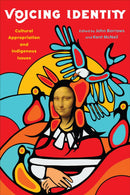Description
John Borrows, Anishinaabe/Ojibway, and a member of the Chippewas of the Nawash First Nation is a professor of law and Canada Research Chair in Indigenous Law at the University of Victoria Law School. Kent McNeil is an emeritus distinguished research professor at Osgoode Hall Law School at York University.
In this unique collection, Indigenous and non-Indigenous authors relate their own experiences with teaching and conducting research involving Indigenous peoples and their rights.
Written by leading Indigenous and non-Indigenous scholars, Voicing Identity examines the issue of cultural appropriation in the contexts of researching, writing, and teaching about Indigenous peoples. This book grapples with the question: who is qualified to engage in these activities and how can this be done appropriately and respectfully?
The authors address these questions from their own individual perspectives and experiences, often revealing personal struggles and their ongoing attempts to resolve them. There is diversity in perspectives and approaches, but also a common goal: to conduct research and teach in respectful ways that enhance understanding of Indigenous histories, cultures, and rights, and promote reconciliation between Indigenous and non-Indigenous peoples.
Bringing together contributors with diverse backgrounds and unique experiences, Voicing Identity will be of interest to students and scholars studying Indigenous issues as well as anyone seeking to engage in the work of making Canada a model for just relations between the original peoples and newcomers. This book contains 5 b&w illustrations.


